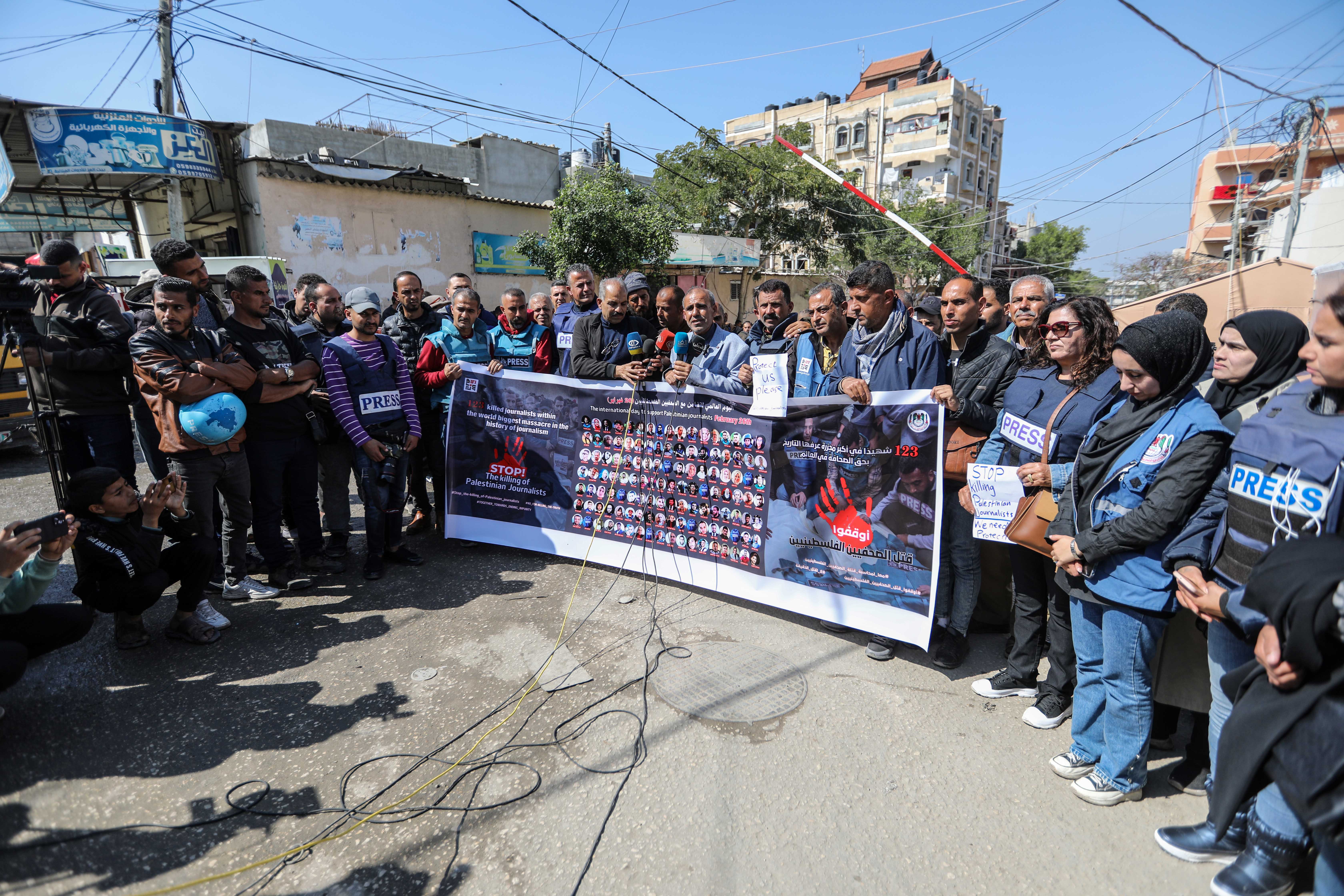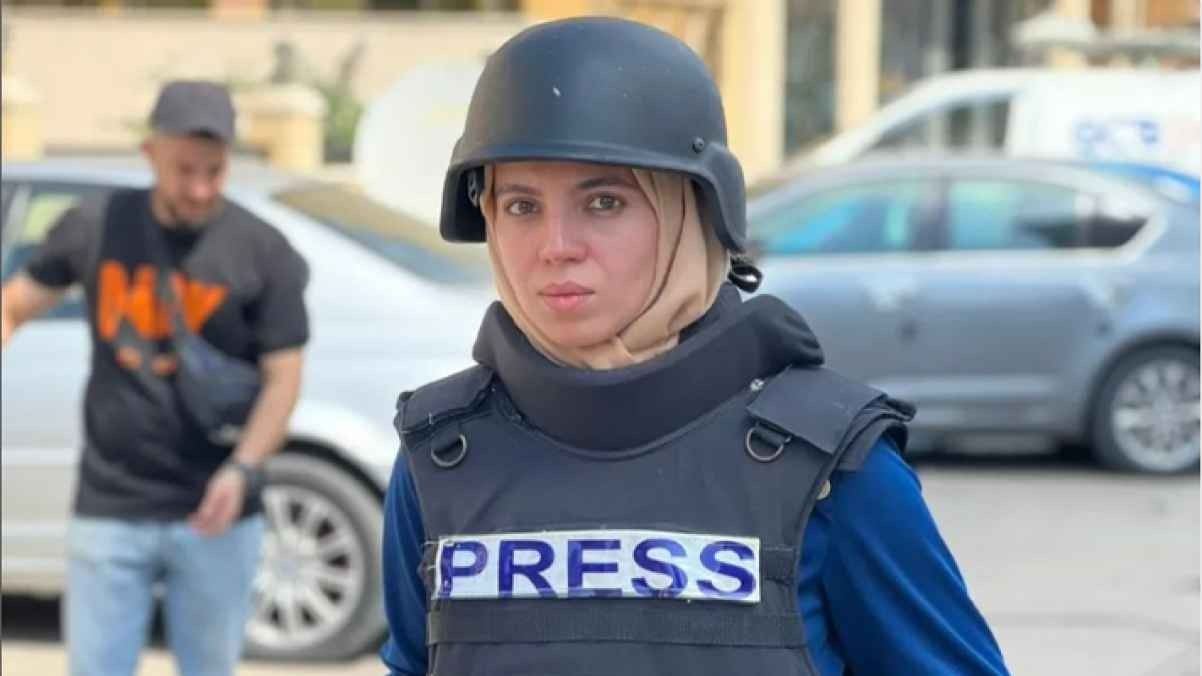سأكون صريحة وأعترف بأني كتبت المقدمة بعد أن أنهيت المقال. قرأته وحاولت إيجاد عنوان أو خط عريض يحكمه فوجدته زفرات وتنهيدات أُطرق فيها بين العبارة والأخرى وأحدق في بياض الصفحة أمامي وأتذكر. أقول لنفسي "مستحيل يا ربي مستحيل!" ولا أصدق كل ما حدث ويجري.
"طوفان الأقصى".. سمعت العبارة أول مرة بينما كنت أجهز حقيبتي في صبيحة السابع من أكتوبر على أمل أن توافق إدارة القناة التي أعمل فيها (تي أر تي عربي) على إرسالي من إسطنبول لتغطية العدوان -القادم بلا شك- على قطاع غزة. وكذلك كان. كنت الصحفية الوحيدة التي ابتُعثت إلى القطاع من خارجه، ومن يومئذٍ حتى اليوم -وقت كتابة هذا المقال- لم ينجح العالم (ولعله لم يحاول) في إدخال صحفيين إلى القطاع كما في عادة الحروب الطاحنة، وكما يحدث في مناطق غلاف غزة!
طوفان الأقصى".. سمعت العبارة أول مرة بينما كنت أجهز حقيبتي في صبيحة السابع من أكتوبر على أمل أن توافق إدارة القناة التي أعمل فيها على إرسالي من إسطنبول لتغطية العدوان -القادم بلا شك- على قطاع غزة.
"فقدتُ عقلي".. هذه إجابتي العفوية عن السؤال الذي ظلَّ يُطرح عليّ من يومئذٍ "لماذا فعلتِ ذلك؟" كان كل شيء في ذلك اليوم يدعو المرء إلى الجنون والصراخ! الفيديوهات التي ظلت تتدفق وظللت أعيد مشاهدتها وأنا في انتظار موعد الطائرة.
فتاة وحيدة في حافلة تحفل بالشباب، كان الطريق من مطار القاهرة إلى معبر رفح البري طويلا وشاقا، زاد طولَه طولُ التفكير وانقطاع الإنترنت وصعوبة معرفة الأخبار.. أي شيء يجري في قطاع غزة الآن؟ كانت وسائل التواصل الاجتماعي تغرق بفيديوهات لا أزال إلى اليوم أفاجأ بين الحين والحين بأني لم أكن شاهدتها. عند كل حاجز في سيناء، أُسأل عن "الدرع والخوذة" اللذين لم أرتديهما بعد، حتى لقد هممت بالتخلي عنهما، وكانت الحماسة يومئذ تفعل فعلها في دمي، أسخر من نفسي وأنا أتذكر الآن كيف اندفعت مثلا لأقول للجنود المصريين: "وتظنون أن المقاومة بحاجة لدرعي وخوذتي بعد ما فعلته أمس".
دخلت جو الحرب لأول مرة في الثامن من أكتوبر وانطلقت سيارة صحفية تطوي شارع صلاح الدين من معبر رفح إلى مدينة غزة، حيث يقيم أهلي في حي الشيخ رضوان؛ الغارات بدأت للتو.
كان المشهد الأول؛ مصاب يصل بسيارة مدنية وقد بترت رجله! في بيتنا، لم يكن أحد على علم بقدومي إلا شقيقي. فاجأتهم كثيرا لكنهم فاجؤوني ببيوت فلان وفلان من أقاربنا التي سوَّتها طائرات الاحتلال بالأرض. تلك كانت لحظاتي الأولى في قطاع غزة، أذكرها الآن ولا أصدق أن الموت لا يزال يهدر في شهره السابع، كيف طال علينا أمد الأوجاع فقست قلوب العالمين وجعلتنا نحتل عناوين الأخبار يوميا!
لم تكن غزة بالتأكيد الحلقة الأولى في سلسلة الجرائم الإسرائيلية بحق الصحفيين، لكنها كانت الحلقة الكبرى! تلك الجرائم لم تنتظر طويلا؛ إذ بدأت مبكرا منذ الأيام الأولى للإبادة. في 11 أكتوبر/ تشرين الأول 2023 كنت وعشرات من الصحفيين نقيم في فندق الروتس غرب مدينة غزة بعد أن أجبرتنا اتصالات جيش الاحتلال على مغادرة مكاتبنا، ثم ما لبثت أن استهدفت مبنى قبالتنا مباشرة بالطائرات الحربية F16، ثم أطلقت عند بوابة الفندق قنابل الفسفور الأبيض المحرم دوليا وتركتنا عالقين لساعات هناك! كنا نحن الصحفيين في بؤرة النار منذ اليوم الأول.
كانوا أبطالا. زملائي جميعا كانوا أبطالا حقيقيين في هذه القصة المميتة، وعرف الناس ذلك -صغيرهم وكبيرهم- فصار الأطفال يتمنون أن يصيروا صحفيين حين يكبرون وأخذوا يلبسون الخوذات والدروع الصحفية ويمارسون المهنة بين أعيننا! في واقع طبيعي لم يكن الصحفي ليأخذ كل هذه المكانة لولا الثمن الباهظ الذي يدفعه كل لحظة! ولم يكن ليكون هو القصة والخبر والصورة وهو الضحية وهو المتهم بالإرهاب!
في واقع طبيعيّ لم يكن الصحفي ليأخذ كل هذه المكانة لولا الثمن الباهظ الذي يدفعه كل لحظة! ولم يكن ليكون هو القصة والخبر والصورة وهو الضحية وهو المتهم بالإرهاب!
هو المسعف لزملائه حين يُستهدفون معا، وهو المصلّى عليه صلاة الجنازة والمحمول على الأكتاف مكفنا بالبياض، وهو المنقذ لأطفال –قد يكونون أطفاله شخصيا- ولا سبيل لإخراجهم من تحت الركام، وهو المغشيُّ عليه على الهواء مباشرة من الجوع أو الإرهاق أو كليهما، الباكي على الأطلال المقيم في الخيام، أنفه مزكومة برائحة الجثامين.
كان الصحفيون قريبين من الناس يسمعون منهم كل يوم سؤالهم إياه "فش حواليكو هدنة؟" يناور في الإجابات لئلا يحبط الناس: ما بين "الله كريم يا خالتي"، "فش إشي أكيد"، "لسة في مفاوضات"، "قولوا يا رب"، "هيهم بيتباحثوا". والناس تستسقيه خبرا واحدا منذ اليوم الأول وهو وقف إطلاق النار وانتهاء الحرب وعودتهم إلى مدنهم وأطلال بيوتهم المهدمة!
الناس يلجؤون إلى الصحفيين لمعرفة الأخبار، ولا سيما مع انقطاع التيار الكهربائي من اليوم الأول والضعف الشديد في وسائل الاتصالات والإنترنت، يستفسرون منهم عن أماكن المياه والدواء وأسماء الشهداء وعوائلهم وأعدادهم، ويشحنون بطاريات هواتفهم في سيارات البث، وكثيرا ما يهرع شهود العيان إلى نقاط الصحفيين في المستشفيات، يدلون بشهاداتهم ممهورة بالدموع والعرق وكثير من التنهيدات.
كانوا أسرة صحفية، كأي أسرة فلسطينية يختلفون في آراء ويتفقون في أخرى، ويأكلون على الأرض في خيمتهم ويتجاذبون فيها أطراف آرائهم ومشاعرهم، يضحكون معا ويشتمون الواقع المر ويتشاجرون ويتصالحون في اليوم نفسه، يشربون القهوة والشاي معا (قبل انقطاعها)، ومعًا يدخّنون. تختلف توجهات الجهات التي يعملون لديها، بين الإعلام العربي والعالمي المكتوب والمرئي ووكالات الأنباء: مراسلون ومصورون وفنيون ومهندسو بث، وقد جعل طول أمد الحرب هذه المرة علاقاتهم أقوى ومعرفة بعضهم ببعض أكبر؛ لذا فالعبارة صادقة حرفيا حين يقال إن "الأسرة الصحفية" في قطاع غزة فقدت أكثر من 140 شهيدا حتى وقت هذه الكلمات منذ 7 أكتوبر!
قلة من هؤلاء الصحفيين في ظل وحشية صراع البقاء قرروا أن يتركوا العمل ويقفوا على طوابير المياه والحساء لتوفير "شيء ما" يبقي أطفالهم أحياء، تفاجئك الإجابة "بطَّل صحفي هيو قاعد في خيمة مع أولاده" حين تسأل عن صحفيين اغتالتهم طائرات ومدفعيات الاحتلال أو شلت حركتهم.
الناس يلجؤون إلى الصحفيين لمعرفة الأخبار، ولا سيما مع انقطاع التيار الكهربائي من اليوم الأول والضعف الشديد في وسائل الاتصالات والإنترنت، يستفسرون منهم عن أماكن المياه والدواء وأسماء الشهداء وعوائلهم وأعدادهم، ويشحنون بطاريات هواتفهم في سيارات البث
أما غالبيتهم فلا يزالون يفعلون الشيء نفسه منذ أول يوم؛ يحاولون النجاة بأنفسهم وبالحقيقة معا. وكأي كائن بشري مسكون بالوساوس تارة واليقين تارة أخرى، ظلت أسئلة الجدوى تطرح في عقول هؤلاء جميعا مع كل مجزرة وكل ليلة -والليل في غزة مرعب فكلما جاءت ليلة لعنت أختها-، هل تصل الحقيقة حقا للعالم، وإن نجحنا في إيصالها فهل يستقبلها العالم؟ وإن استقبلها فهل سينجح هذا العالم في إلجام الوحش الهائج علينا الموغل في دماء أولادنا وبناتنا. أسئلة صعبة لكنهم لا يزالون يطرقون جدران الخزان.








































